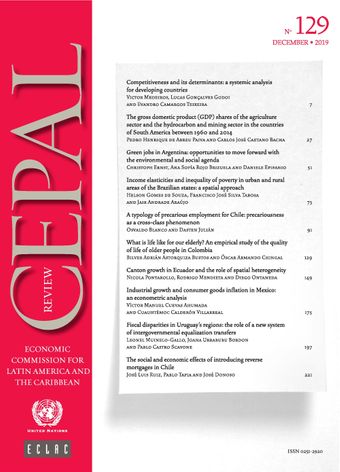-
Green jobs in Argentina: opportunities to move forward with the environmental and social agenda
- Source: CEPAL Review, Volume 2019, Issue 129, Dec 2019, p. 51 - 71
- Spanish
-
- 20 May 2020
Abstract
The Argentine economy has been becoming greener because of a new political orientation, international commitments (the Paris Agreement and the 2030 Agenda for Sustainable Development) and private sector initiatives. This transition is having economic and social impacts. The aim of the present article is to determine the potential of the economy to create green jobs that protect workers and the environment. In 2015, 7% of formal jobs were green and presented better average employment conditions than the rest. They were predominantly in goods production and the provision of urban services, such as sanitation and transport. Regulations and public policies seem to be the main factors driving green job creation, with consumption still playing a minor role. For the transition to a green economy to be fair, policies must take account of the employment dimension in order to initiate a virtuous circle leading to a more productive, inclusive and environmentally friendly economy.




